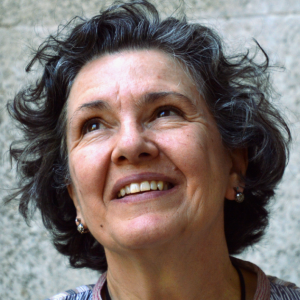Marina Estela Graça (Portugal)1,2
1 – Center of Research in Arts and Communication (CIAC); 2 – University of Algarve (UAlg)
Marina Estela Graça
Marina Estela Graça is a researcher in Poetics and Critical Analysis of the Discourse in Animation and was the creator of the degree in Animated Image at the University of Algarve, Portugal, where she teaches. She directed and animated alone two short films, published two books as well as different scientific articles. She also supervised master’s and doctoral degrees and participated in juries (academic and in animation festivals), conferences, seminars and international scientific commissions in her area of research.
Abstract
As it is known, Animation production and screening went through technological radical changes, since the first digital experiments, entering new fields such as videogames industry and production of alternative media, and becoming pervasive in different platforms. At the same time, societies gradually grew aware of how important should be the development of skills and knowledge in the area of visual and audiovisual communication produced and supported by digital platforms — media literacy — an example being the different directives produced in the field by the European community.
Unfortunately, this condition has not been buttressed by a similar development of Animation formal education by Portuguese elementary and secondary schools, promoting a void of knowledge that tends to be filled with self-taught skills and myths by interested youngsters.
This proposal intends to present the different education initiatives that the University of Algarve has created in the field of Animation, since 1990. Information about educational and professional contexts in Portugal will also be presented, in order to allow the understanding of the constellation of objectives, obstacles, opportunities and strategies behind. Our purpose is to contribute with concrete and accurate data for the history of formal education in Animation, particularly with regard to higher education in Portugal.
Palavras-chave: Animation in Higher Education, Animation Studies, Media Literacy
